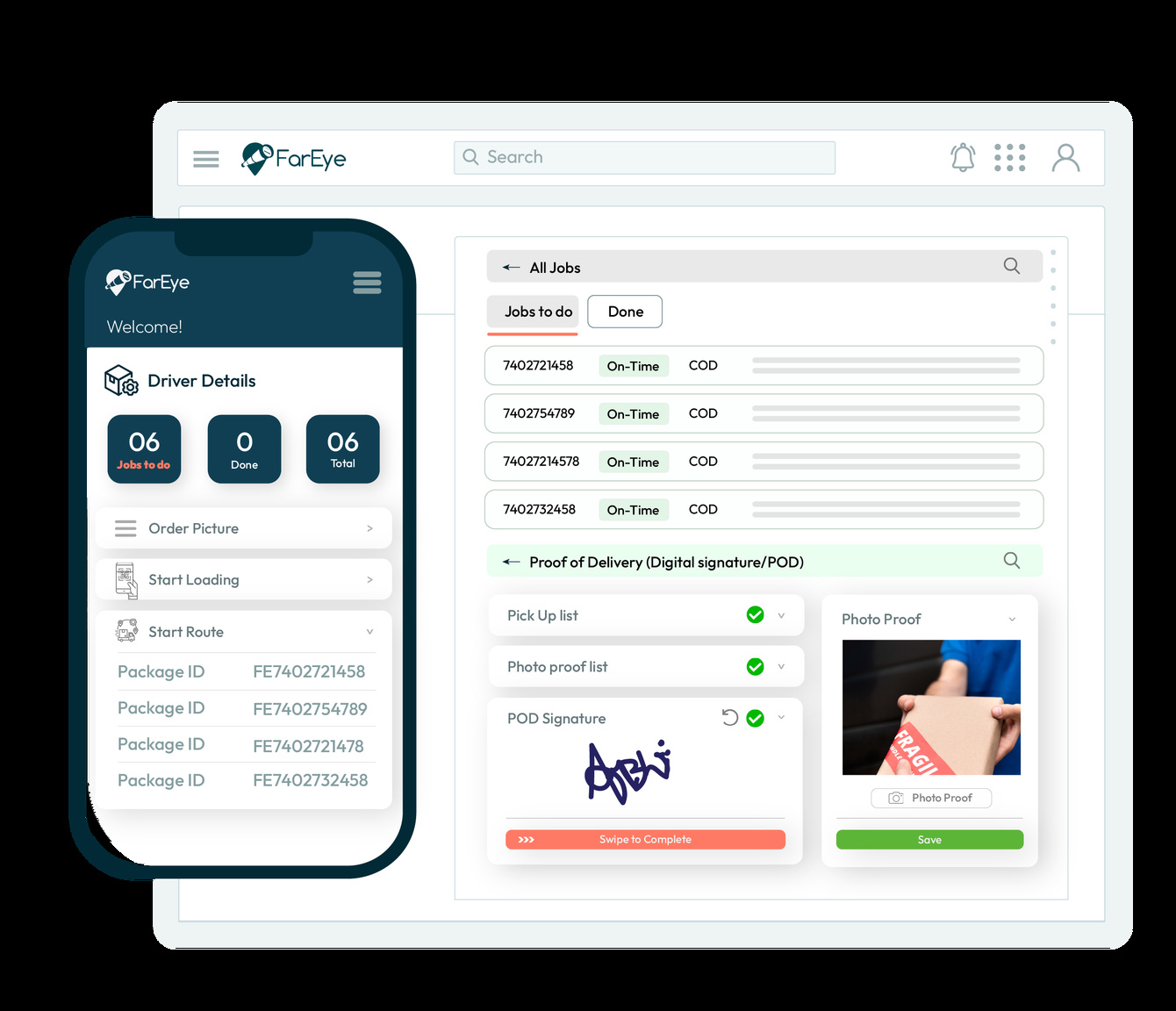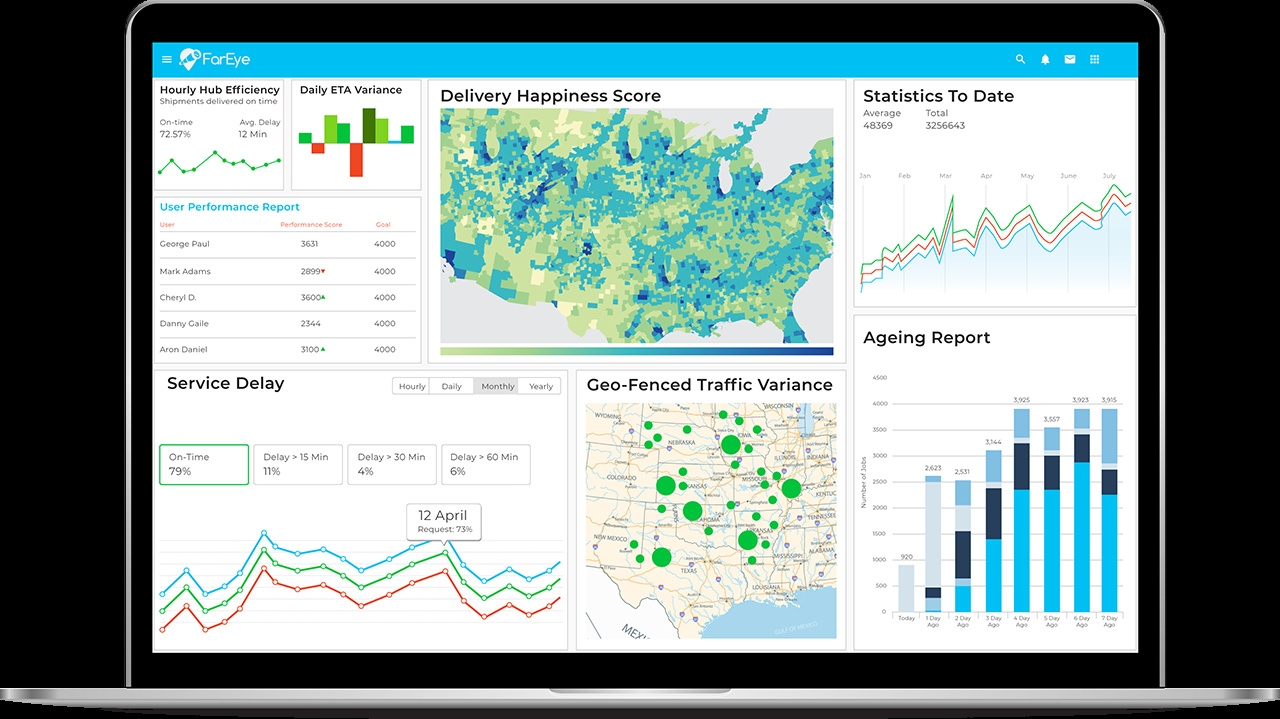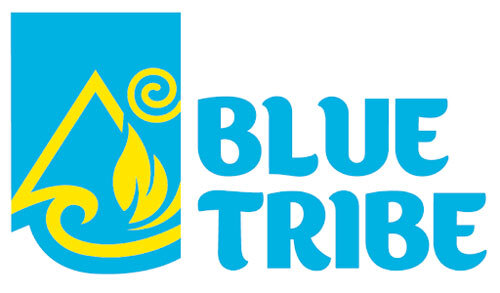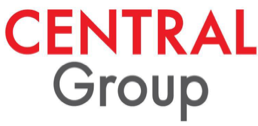- Last-Mile
Last Mile Delivery Software
Table of Contents
- The Last-Mile Delivery Challenge
- How FarEye’s Last Mile Optimization Software Can Help
- Delightful Deliveries With FarEye's Last Mile Delivery Optimization Software
- Extended FarEye Last Mile Delivery Software Features
- Benefits of FarEye Last Mile Delivery Tracking Software
- More Benefits of FarEye Last Mile Delivery Logistics Software
- Key Last Mile Delivery Challenges Enterprises Need To Address
- The Importance Of Last Mile Tracking
- How Last Mile Delivery Software Improves Operational Visibility
- Optimizing Last Mile Delivery Costs
- Embracing Last Mile Route Optimization Software
- Driving End-to-End Last Mile Connectivity
- Improving The Last Mile Transportation Ecosystem
- Final Mile Delivery Software: An Emerging Trend



Last Mile Delivery Software
Transform your last mile with:
Delivery automation for increased on-time deliveries
AI-based route optimization for faster & cheaper deliveries
Real-time tracking of all orders at all times

Trusted by the World's Top Brands
Why Businesses Choose FarEye’s Last Mile Management Software?
FarEye’s Last Mile Software Solutions
Achieve hassle-free last mile options with FarEye’s last mile delivery software. Ensure every delivery reaches on-time, every time. Keep delivery costs under control with streamlined operations in the last mile. Simplify the delivery process for all your stakeholders from dispatchers to drivers. Provide flexibility and convenience to customers by keeping processes agile. Manage scale with ease and grow your delivery operations rapidly to achieve profitability. Integrate seamlessly with your current technology stack to ensure secure and smooth interoperability. Meet your sustainability goals and reduce fuel usage using FarEye’s AI-powered route optimization engine. Customize the solution and pivot quickly to the changing needs of your enterprise to suit your scale of operations.



Key Capabilities:
Streamline Dispatching
Minimize dispatching time at your hubs for your dispatchers with automation. Centralize all your deliveries on one interface and streamline them to optimize the performance of your dispatchers and field workers:
- Generate routes in minutes for your owned fleet and prioritize them based on delivery SLAs
- Manage outsourced carriers with equal ease with rate-based allocation and minimize delivery costs
- Achieve faster dispatching through rapid scanning, sorting & label generation at your delivery hubs
- Assign orders to drivers automatically using AI-based algorithms to maximize stops per hour and reduce fuel costs


Transform Driver Management
Take control of your driver operations from end-to-end and enable them to maximize their deliveries. Streamline driver operations and roster management to achieve the perfect last mile with a wide array of capabilities.
- Automate driver onboarding through FarEye’s driver mobile (Android & iOS) up where they can sign-up and upload proofs for approval
- Automate approval workflows and reduce onboarding time by removing manual dependency
- Upload training videos and get them ready for field operations at the soonest
- Leverage the app to assign orders, facilitate customer communication, accepting payments, making statuses and capturing proof of delivery
Superior Customer Experience
Transform customer experience in the last mile and boost brand loyalty. Deliver a superior, consistent and predictable experience to your customers to delight them throughout the delivery lifecycle and gain a competitive edge.
- Provide flexibility to schedule their deliveries and change them at any point in time
- Enable customers to track their orders in real-time with notifications, milestone updates through multiple channels - SMS, Whatsapp, email and more
- Establish ways to place special instructions to drivers and securely communicate with them while the order is in transit
- Collect feedback from customers on successful completion of deliveries
- Enable seamless returns and quick refunds processing



Last Mile Delivery Platform for Modern-day Enterprises
Benefits of FarEye Last Mile platform

Dispatcher:
- Reduce dispatching hours
- Provide complete operational visibility
- Reduce total cost of deliveries
- Meet delivery SLAs consistently
- Make data-driven carrier decisions

Driver:
- Maximize stops per hour
- Reduce fuel consumption with optimized routes
- More incentives due to increased deliveries
- Reduced delivery failures
- Reduced empties

Customer:
- Mitigate anticipation anxiety
- Transparent deliveries with order-to-door visibility
- Improved flexibility with delivery slot selection
- More convenience with rescheduling options
- Low delivery fees/free deliveries
- Seamless returns & refunds
- Reduce dispatching hours
- Provide complete operational visibility
- Reduce total cost of deliveries
- Meet delivery SLAs consistently
- Make data-driven carrier decisions

- Maximize stops per hour
- Reduce fuel consumption with optimized routes
- More incentives due to increased deliveries
- Reduced delivery failures
- Reduced empties

- Mitigate anticipation anxiety
- Transparent deliveries with order-to-door visibility
- Improved flexibility with delivery slot selection
- More convenience with rescheduling options
- Low delivery fees/free deliveries
- Seamless returns & refunds

FAQs:
What is last-mile delivery?
How to track last mile deliveries?
Who manages the last mile?
What is final mile delivery software?
What are the typical challenges in the last-mile?
What are last-mile KPIs?
How can last mile logistics software help businesses improve their delivery operations?
Effortlessly Manage Your Last Mile Fleet, Optimize Routes, and Execute On-Ground Deliveries with Full End-to-End Visibility. Ensure Financial Accuracy and Seamless Settlements with FarEye’s Last Mile Delivery Software
The Last-Mile Delivery Challenge
- Last-mile delivery is the most complex and costly stage in the logistics process.
- Businesses struggle with missed delivery windows, frustrating customers and damaging brand reputation.
- High operational costs arise from inefficient routes and rising fuel expenses, cutting into profits.
- Lack of real-time visibility leaves businesses and customers unaware of delivery statuses, causing uncertainty.
- Poor customer satisfaction from late deliveries impacts brand loyalty and repeat business.
- These challenges make mastering last-mile logistics essential but difficult to achieve.



How FarEye’s Last Mile Optimization Software Can Help
FarEye’s last-mile delivery software is designed to address these pain points head-on, offering an advanced, all-in-one solution to optimize deliveries from start to finish.
Our platform provides real-time tracking, ensuring full visibility into every delivery, which helps businesses stay proactive and customers stay informed.
With AI-powered route optimization, FarEye ensures drivers take the most efficient routes, reducing fuel costs and delivery times.
Our software also automates scheduling, making it easier to meet delivery windows and keep customers happy.
Seamless integration with existing systems allows you to manage logistics smoothly without disruptions.
FarEye empowers businesses to cut costs, increase efficiency, and deliver exceptional customer experiences.

Delightful Deliveries With FarEye's Last Mile Delivery Optimization Software
FarEye is a customizable SaaS based delivery management platform that has helped world’s leading enterprises solve their last mile challenges. FarEye's last mile delivery management software empowers enterprises with the following capabilities:
Fully customizable solution
Automatic order allocation
Automatic dispatching
Chatbot-based customer support
Real-time dynamic routing
Flexible delivery scheduling
Customer live delivery tracking app
Electronic proof of delivery
Extended FarEye Last Mile Delivery Software Features
Key Highlights
Machine-learning based routing
Geofence based attendance tracking
Digital run sheets
1-click tracking
Real-time ETAs
SMS & web-based fleet tracking software
KPI dashboards
Digital control tower
Predictive alerts & notifications
Pick-up point & parcel shop deliveries


Benefits of FarEye Last Mile Delivery Tracking Software
Modern last mile delivery tracking software or last mile tracking software generates multiple benefits that range from automating repetitive manual tasks, boosting profitability to enhancing customer experience. Let's quickly glance through some of the major benefits of such last mile tracking software.
1. Real-Time Route Optimization
Last mile delivery tracking software optimizes predefined delivery routes in real-time. Based on factors like traffic congestion, weather conditions, delivery urgency, sudden road closures, on-ways, number of deliveries on a single route amongst others, it constantly looks for ways to ensure that a driver is armed with the most efficient route and that ETAs are adhered to.

2. Proactive Delivery Monitoring
An advanced last mile delivery tracking platform empowers businesses to get proactive with deliveries and help their customers prepare contingencies in case of any unprecedented events. By studying patterns and analyzing historical data a last mile delivery tracking platform accurately predicts by how much time delivery will be delayed, will it be on-time or early.
3. Enhanced Delivery Productivity
Last mile delivery platform boosts productivity by ensuring drivers follow highly-efficient routes, it eliminates chances of unnecessary delays and stoppages and triggers alerts in case of potential risk-situation. All these positively impact delivery turnaround-time and reduce overhead expenses.
4. Data-Driven Decision Making
A modern last mile delivery tracking platform is powered by machine learning algorithms and business intelligence that empower delivery stakeholders to make prompt and accurate decisions based on data.
5. Intelligent Third-Party Logistics Management
Such software tracks every movement of 3PL providers, carriers and shippers. At any given point in time businesses can know the delivery status of an order that's being shipped by a logistics partner. Last mile delivery tracking platform accurately benchmarks KPIs of third-party logistics providers by analyzing historical performance. It helps select delivery partners based on the type of delivery, size of the order, location of parcels, nature of items and more.
6. Improved Customer Experience
Last mile delivery tracking software empowers businesses to provide high-levels of delivery transparency to the customer. Customers can know at any given time where her delivery is, when will it reach and who will bring it. Such software sends out automated notifications to customers updating them about delivery progress and delays if any. A last mile tracking platform is powered by natural language processing chatbots that boost customer engagement.

More Benefits of FarEye Last Mile Delivery Logistics Software
Improved Delivery Happiness Score
Using our modern logistics platform businesses can enhance customer experience through a seamless execution of last mile delivery process. Provide them advanced facilities like customer scheduling, real-time live tracking, predictable ETAs.
Improved Operational Efficiency
Leverage the power of our final mile delivery automation software to make your deliveries error-free, efficient and optimized. Save a lot of operational costs as a result of optimized last mile delivery processes. Track core KPIs using FarEye’s customizable control tower.
Improved Real-time Visibility
Curb the challenge of poor logistics visibility with our last mile visibility software that gives real-time predictive visibility to all your last mile delivery operations. Whether it is a warehouse or en-route or delivered or returned shipment, keep all your stakeholders informed through multiple modes such as WhatsApp, SMS, email and more.
Increased Courier Productivity
Advanced logistics platform ensures better automation, visibility and predictability. This helps delivery agents do more with less time. This means a significant increase in your deliveries which you can measure per hour. Equip them with our modern logistics app to boost productivity and keep them engaged. To know more about FarEye’s last mile delivery platform you can quickly get in touch with our delivery management experts here.


Key Last Mile Delivery Challenges Enterprises Need To Address
1. Lack of Real-Time Last Mile Visibility
Poor or lack of visibility into last-mile operations have historically been a major challenge for the logistics industry. Poor visibility triggers a series of inefficiencies like delivery delays, increasing logistics risks, inaccurate benchmarking, diminishing OTIF (on-time in-full) volumes, poor delivery productivity and more. A modern last mile visibility software can go a long way in helping enterprises gain high-levels of delivery visibility.
2. Control over Last Mile Operations
Traditional means of managing delivery operations cannot cope up with the rapidly growing speed of delivery operations. In absence of robust tracking and tracing mechanisms, it's extremely difficult to have a firm grip over ground-level delivery operations. Especially when it comes to managing third-party logistics partners, control is key. Leveraging manual methods like calls, lengthy spreadsheets, dated physical documents among others make logistics partner management a daunting task. Hence, savvy delivery executives are investing in last mile delivery tracking software to drive intelligent 3PL management and boost control over last mile operations.
3. Increasing Customer Anxiety
Modern customers are impatient. They are driven by the need for instant gratification. Businesses that do not succeed in providing customers with delivery transparency will find themselves swimming in hot waters. Intimating customers about delivery progress through automated alerts and notifications is not just a 'good to have' anymore. It's a necessity and it also empowers brands to fight competition.
Two key reasons behind rising anxiety levels are delayed deliveries and inaccurate ETAs. Traditional methods of calculating ETAs are inefficient. These methods cannot compute multiple variable factors, both internal and external, before confirming the exact delivery time.
It's not easy to gain the confidence of modern customers with such processes. If the ETA says one-hour, the customer will expect the delivery within an hour.
4. Growing Volumes of Shipment Status Check-in Calls
Growing volumes of calls from customers to know about the shipment status are one of the most frequent challenges businesses face. Hours of time, money and energy goes into picking up customer query calls and responding to them, and coming up with the right response can in itself be a tedious process.
For instance, if a customer asks an agent when her courier will be delivered, the agent needs to first trace which transporter is responsible for the delivery. Then narrow down the search to the person who is working on the ground to ensure that the customer's order is delivered. In most cases, the agents need to connect with a middleman, who then connects to a driver and finds out the delivery status and then gets back to the agent. The agent then reverts to the customer with a befitting answer.
This is still a simple scenario. It gets extremely complex in reality. Answers to 'where is my delivery?' can often get lost in an infinite loop between multiple transporters, multiple middle and multiple drivers. To eliminate this hassle businesses must embrace last mile automation software. Such software automates the entire process of notifying customers.
Through auto alerts, smart tracking links, mobile apps and text notifications, last mile automation software drastically reduces the need for customers to make calls to know about their delivery status.
5. A Dearth of Day-to-Day Operational Clarity for Drivers
Drivers often face a situation where they hardly have any idea about the delivery tasks they are supposed to complete or the targets they need to meet on a given day. Delivery tasks get assigned in an ad-hoc and random manner without considering any factors like delivery type, proximity from customer location, empty miles, opportunity for multi-drop deliveries and more.
This makes it difficult for drivers to manage tasks and ultimately impacts their productivity. Embracing a last mile delivery management platform is a smart way to address this problem. It makes drivers proactive by automatically planning delivery schedules in advance. Last mile software solutions also makes delivery executives extremely productive.
6. Reducing Operational Efficiency
Inefficient delivery operations directly impact the bottom line and increase the total cost of ownership. By operational efficiencies we mean unnecessary fuel consumption, growing instances of empty miles, thefts, inefficient route planning, inability to respond to emergencies and exceptions, increasing vehicle wear and tear, poor delivery productivity, shrinking on-time in-full delivery volumes, growing delivery failures and more.
Some key reasons behind inefficient delivery operations are increasing dependencies on manual intervention, lack of visibility, poor communication between delivery stakeholders, inefficient 3PL management and dearth of capabilities to ensure data-backed decision making.
A robust enterprise-grade last mile platform helps businesses address operational challenges by leveraging automation, machine learning, the Internet of Things, predictive intelligence and analytics.


The Importance Of Last Mile Tracking
Ensuring efficient last mile tracking, a key feature of last mile software solutions, is a great way to address some of the key delivery challenges we mentioned above. The significance of last mile tracking lies in how it impacts customer experience and delivery profitability both in the long and short run. Using last mile tracking capabilities delivery stakeholders can improve visibility of ground-level delivery activities.
Knowing where a vehicle is, what's the status of a delivery, what's its ETA, who is executing the last mile operation, what's the customer's location and more becomes extremely easy.
It helps identify any inconsistencies at a micro-level. Hence, it makes absolute sense to deploy last mile routing software. Such software empowers enterprises to track and trace delivery fleet in real-time. An advanced last mile routing software or an advanced last mile platform is powered by predictive intelligence and machine learning that proactively alerts delivery managers about a delivery being completed early, on-time or delayed.
Another key advantage of last mile tracking is providing customers with delivery transparency.
How Last Mile Delivery Software Improves Operational Visibility
Operational visibility improves when every delivery event, driver action, and exception is captured in a single live view rather than scattered across messages and spreadsheets. The best last mile delivery software consolidates order feeds, route progress, and proof-of-delivery updates into a shared timeline that operations, customer teams, and finance can trust.
A last mile delivery management solution strengthens decision-making by flagging late departures, stalled vehicles, and high-risk addresses early. So that teams can resequence stops or reassign work before SLAs are missed.
For enterprises coordinating bulk routes and scheduled drops, B2B last mile delivery software adds customer rules, time windows, and access instructions to ensure consistent outcomes. When paired with first and last mile delivery software, leaders gain end-to-end transparency across handoffs, cost drivers, and service performance.
Optimizing Last Mile Delivery Costs
The last mile is known to be expensive. Having said that, it's also true that there are multiple opportunities to optimize key delivery processes and reduce last mile delivery costs. So, the answer to 'how to reduce last mile delivery costs?' lies in optimization. By reducing miles per delivery, improving visibility, mitigating risks, boosting driver productivity, generating multi-drop delivery routes and ensuring SLA adherence, enterprises can drastically improve their existing last mile delivery cost structure.
Embracing Last Mile Route Optimization Software
A secret to efficient and fast last mile execution is embracing robust last mile route optimization software. These tools analyze historical data and automatically generate highly efficient delivery routes. This helps enterprises reduce fuel consumption, shrink carbon footprint and ensure fast, same-day and one-hour delivery. Modern routing tools also optimize delivery routes in real-time to ensure Estimated Time of Arrivals (ETAs) are met.
Driving End-to-End Last Mile Connectivity
Connecting every moving part in the last mile ecosystem is critical to ensuring end-to-end delivery visibility, eliminating downtimes, mitigating risks, improving stakeholder collaboration and accurately benchmarking carrier performance. Hence, there is an urgent need for businesses to quickly address the last mile connectivity issue. Modern last mile connectivity solutions can easily connect with disparate logistics IT architectures like TMS, WMS, OMS, 3PL networks and more to drive seamless interoperability across delivery silos.
Improving The Last Mile Transportation Ecosystem
Inefficiencies like poor routing, lack of delivery visibility, increasing transportation risks, unnecessary logistic downtimes, poor utilization of capacity and last mile delivery vehicles have been weighing down transportation operations for a long time. Modern last mile transportation solutions powered by disruptive technologies like AI, Machine Learning, IoT, analytics and predictive intelligence can seamlessly address these challenges and drastically optimize transportation operations.


Final Mile Delivery Software: An Emerging Trend
Owing to growing environmental regulations around carbon emissions, businesses that are heavily dependent on transportation operations need to embrace digital means to manage deliveries to shrink their carbon footprint. Therefore, savvy and socially aware enterprises are leveraging cutting-edge final mile delivery software to make delivery operations autonomous, reduce fuel consumption and shrink miles travelled. Final mile delivery software also shrinks paper usage, eliminates vehicle idling and reduces empty miles. These factors when put together can significantly curb a brand's carbon emissions.
Leveraging an advanced last mile software to drive customer centricity and profitability
The need to embrace last mile delivery software is being driven by the need to boost customer loyalty, optimize operational costs and curb manual dependencies. With growing customer expectations the need to craft new last mile delivery models is becoming eminent. Businesses across industries are realizing that their traditional delivery models are simply not efficient enough to drive same-day deliveries, on-hour delivery, contactless deliveries, hyperlocal deliveries, curbside pickups, white-glove services among others. Hence, embracing advanced last mile software to digitalize core logistics operations is rapidly emerging as a key business enabler.
Modern last mile management software empowers brands to balance cost and customer experience. It helps them achieve agility but not at the expense of efficiency. It leverages disruptive technologies to augment human efforts when executing final mile delivery service.
Enterprises across B2B, B2C & D2C are facing the need to deliver a perfect last mile experience and hence leverage last mile solutions. A last mile delivery platform or last mile delivery software empowers businesses to cater to ever-increasing customer expectations and achieve operational efficiency. It keeps costs under check, provides a range of operations like delivery scheduling, task allocation, routing, real-time tracking, tracing and more.
FarEye's last mile delivery routing software helps them deliver the perfect final mile experience to customers at optimal efficiency.



Komal Puri is a seasoned professional in the logistics and supply chain industry. As the AVP of Marketing and a subject matter expert at FarEye, she has been instrumental in shaping the industry narrative for the past decade. Her expertise and insights have earned her numerous awards and recognition. Komal’s writings reflect her deep understanding of the industry, offering valuable insights and thought leadership.
Let's Talk to Our Experts and Optimize Your Deliveries Today!
An expert from our team will reach out within 24 hours




